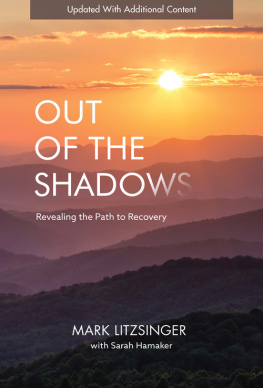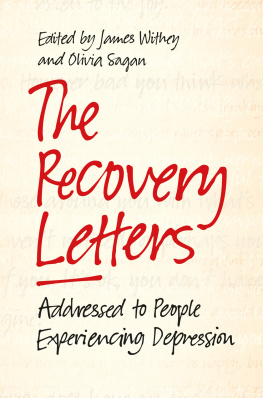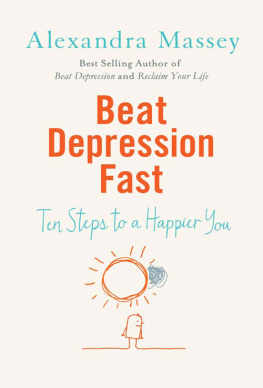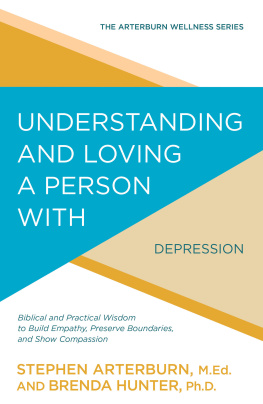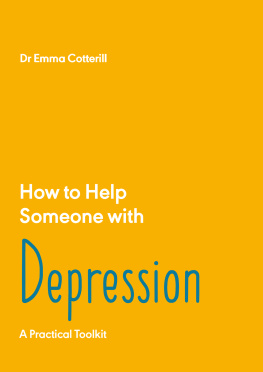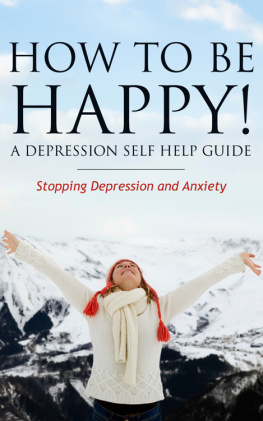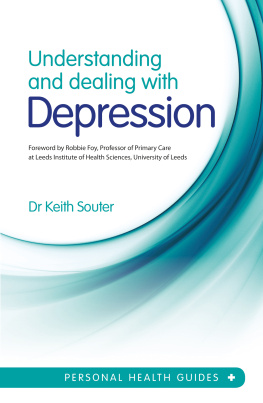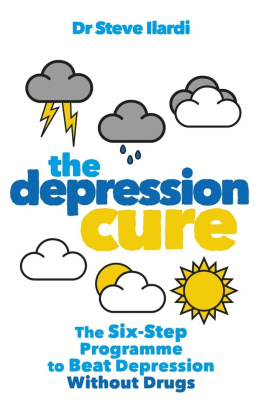Audio Tracks: A Mindful Approach to Recovery
The print version of this book includes a CD entitled A Mindful Approach to Recovery, on which the author takes you through some exercises in mindfulness. We invite our ebook readers to access these audio tracks by going to www.gillmacmillan.ie/coming-through-depression. There are five tracks in all. We hope you enjoy them.
Preface

I first wrote a version of this book 10 years ago, entitled Depression: A CommonSense Approach. In those 10 years, my understanding of depression has changed and matured. As I revisited the pages I had written, I encountered many places where my writing needed greater depth and clarity.
I am grateful to have had the chance to revisit this project and particularly to include a brand-new section on mindfulness. Mindfulness has been shown to offer a powerful protection to people who are vulnerable to depression. I believe this book offers the reader a much fuller account of the path to recovery.
Our lives are interwoven with emotions of all kinds, every day. There are no negative emotions or positive emotions. All emotions offer pathways to understanding ourselves more and more each day, and this understanding enables us to make sense of the world in which we live.
When the way we feel becomes hard for us to accept, when we are having repetitive thoughts about how negative we are as a person, and when we cannot seem to shift this thinking and we feel worn down and at a loss as to how to live in the world, we describe this experience as depression.
Depression is a word we use very loosely, as though it were exactly the same experience for everyone. In fact, it is very particular to each person who feels that way. No single person will feel exactly the same way as another who feels overwhelmed and unhappy in themselves.
Mindfulness means paying attention to whatever is happening in the present moment, and accepting our experience without judging it or trying to fix or change anything. It invites us to relate to our experience with kindness instead of reacting to it and getting carried away by stories about how we shouldnt be feeling this way. Practising mindfulness helps us to calm down, to become more aware of what is going on within us, and to meet our difficulties with honesty and acceptance.
What if the way you feel right now is the only way you can feel in this particular moment? What if this moment doesnt get any better than it is right now? What if it were possible to hold our experience in awareness and allow it to be just the way it already is?
That would be an incredibly radical act, says Jon Kabat-Zinn, a pioneer in mindfulness training, but it would also be an act of profound wisdom. We would stop struggling against the way things are. We would start to investigate what is happening and see that inside of our sadness, our grief and our despair, there is something else going on; some kind of deep understanding in us that recognises that loss is real for all of us, that disappointment is inevitable, that everything is changing, that our bodies age, and that we cant control the universe, much as we would like to.
And this is not all black, because we have evolved over billions of years to deal precisely with this type of reality. There is no other reality. We are fragile and we can be broken but we also have within us a capacity to adapt, to be changed and to evolve through facing our difficulties.
For many of us, it is hard to stop and take time to step into the present moment. Our mind is always on the way to somewhere else. We blast through our days and weeks, living somewhere in the future a lot of the time. We tell ourselves that we will only be able to settle in the present when the conditions are right, but of course they are never right.
The truth is that we dont believe that we can find happiness in the present moment. In fact, we are more likely to believe that we will only find happiness if we steer clear of the present.
Maybe we are afraid of what we might find there unpleasant and painful feelings that we fear could overwhelm us and we would rather push them out of our minds and steer clear of them. We may even be reluctant to stop and appreciate pleasant experiences, because we always imagine there will be an even better time, somewhere in the future, when everything will be just the way we want it, and when we can be really happy.
So we tend to live lives where we constantly distract ourselves. We worry or fantasise about what might happen, or we brood over the past, regretting what has happened, running it over and over in our minds as if somehow by doing this we can change the past. Living this way can be exhausting.
Some part of us would like to stop running, to come home to the present moment and rest there, but we dont know how.
The practice of mindfulness helps us to find a place of quiet in our lives, where we can feel safe and steady ourselves. When we learn to rest in the present moment, we are able to be with whatever we are feeling without being overwhelmed and without getting carried away by our fearful thoughts.
This revised version of my earlier book, Depression: A CommonSense Approach, takes you on a journey that involves looking courageously at what happens when you feel depressed and are listening to what it may be trying to tell you about your life. This forms Part One of this book. Part Two gives you some guidance as to how you can get back on your feet and regain some control over your life, so that you dont continue to feel lost. Putting some structure on your everyday life is necessary so that you can relate to your deeper hurts and wounds. Part Three introduces you to the practice of mindfulness and shows you how you can live with yourself and begin to heal those places in your mind and heart where you remain vulnerable to depression. You will be introduced to specific ways that will help you to rest in the present, pay attention to what is happening in your body and find stability. When you have taken time to practise these skills, you will be able to be open to painful emotions and thoughts without becoming overwhelmed. These exercises can prevent you from slipping back into an experience of depression, which can be a very demoralising and heart-breaking experience for anyone who feels they have already put depression behind them.
It is possible for any human being to lose their way, but it is equally possible for any human being to find their way. When we feel lost, it is not because of whats happening or what is missing in our life; we only feel lost when we cannot see what is happening and when we become too frightened to be with ourselves. The moment you can name what is there and be with your experience, you will not feel so lost.
Being mindful, being present to ourselves, connects us with our inner strength. We discover that no matter how broken we may feel, we are also fully human and whole, and we have an amazing capacity to hold and transform whatever is happening in our awareness, with compassion.
Recovery is a path that each of us follows as we engage more openly and more courageously with the life we have been given. Your path to recovery is not something that anyone can point out to you. It is something you discover, one step at a time, and it always begins with the place you are in right now. Mindfulness can help us to see beyond the noise level of our thoughts to the supports that are available to us, and clear a space in our mind where new insights can emerge.



